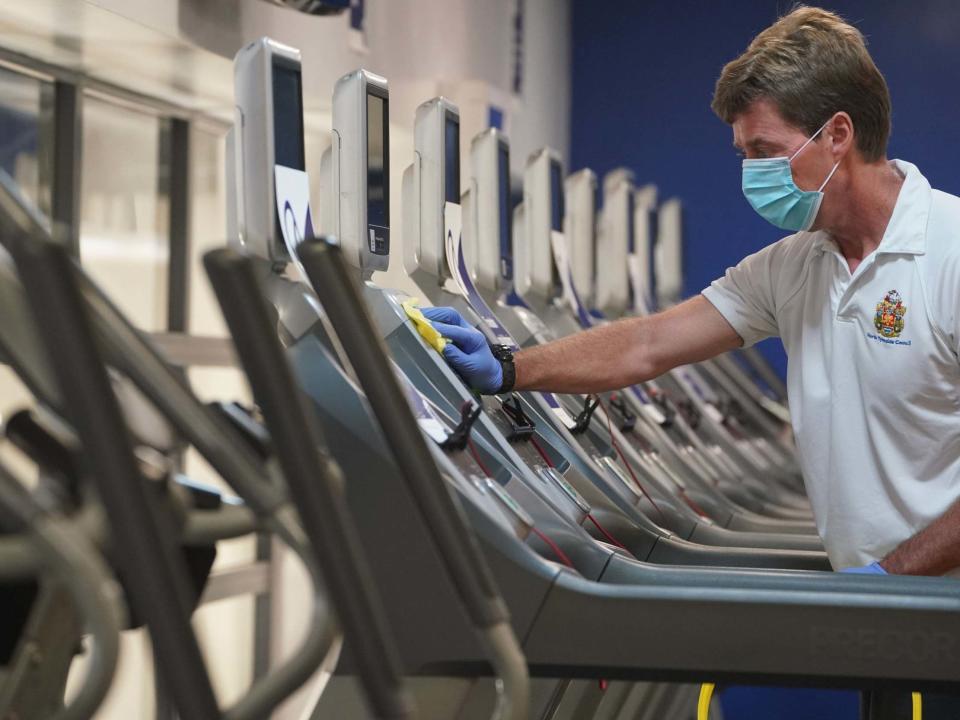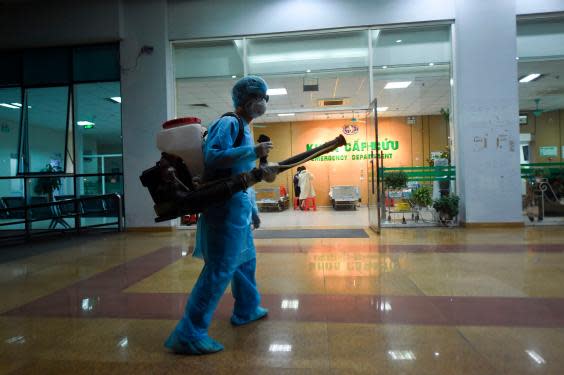Boris Johnson must close pubs and gyms again to get England close to ‘zero Covid’ before winter, Independent Sage expert says

Boris Johnson should reverse the reopening of high-risk indoor venues like pubs and gyms and some shops as part of a drive to get England as close as possible to “zero Covid” before the winter strikes, a member of the Independent Sage group of scientists has said.
And Professor Susan Michie told The Independent the government should be providing financial support to people self-isolating and offering hotel rooms for quarantine, to ensure effective implementation of a key element of the fight against coronavirus which is currently virtually voluntary.
Her comments came as Mr Johnson postponed plans to reopen bowling alleys, wedding receptions and skating rinks following an upward surge in cases, while chief medical officer Chris Whitty warned that England was now “near the limit” of the restrictions which can be relaxed without losing control of the virus.
Professor Whitty told a Downing Street press conference on Friday: “If we wish to do more things in the future, we may have to do less of some other things.”
A member of the government’s official Sage group of scientific advisers, Professor Graham Medley, today backed Prof Whitty’s message, telling BBC Radio 4’s Today programme: “It might come down to a question of which do you trade off against each other and then that’s a matter of prioritising. Do we think pubs are more important than schools?”
Prof Michie told The Independent that indoor venues like pubs and bars (which were allowed to reopen with social-distancing measures on 4 July) and gyms (which opened on 25 July in England) risked being “super-spreader areas”, driving repeated local flare-ups, which would hobble efforts to return to normality.
She said it was clear that the government – following advice from the Joint Biosecurity Centre in May that 1,000 new cases a day was an “acceptable incidence” of coronavirus – was not aiming for zero Covid in England.
“If they wanted zero Covid, they wouldn’t be opening gyms,” she said. “They wouldn’t be opening super-spreader areas like indoor pubs and bars, places where people are close to each other and touching each other and shouting and sweating.”
She added: “We have to look at first principles. The more people you are in contact with for the longer time and the closer in distance, and the more there is going to be shouting or singing or sweating, the more risk there is. Now that we know there is aerosol transmission, it is clear that the more ventilation there is the less risk there is.
“Drinking outdoors is less risky than inside. Open-air markets are much less risky, and shops which have a lot of people going through without much ventilation more risky.”
Prof Michie said: “The government should be less short-term and less ‘wing and a prayer’ and more focused on the lessons from other countries where they’ve got Covid down and kept it down.
“We need to be in a position where we can have confidence that children can get back to school in September and businesses can reopen with confidence. If we hadn’t lifted lockdown in June we could have been looking at zero Covid in September. If we restricted those high-risk places, then by October and November when the pressures start building on the NHS, then hopefully we can get through the winter.”
Prof Michie, professor of health psychology at University College London, said the government should be focusing more on the “isolate” strand of the “test, trace and isolate” system.
The Independent Sage has long argued that an effective system must include financial support to reduce pressures to breach the period of isolation required of those identified as close contacts of coronavirus patients.
“The problem is that the government hasn’t got a strategy to support people to isolate,” she said.
“There are a lot of people who need financial support to be able to isolate. And there are a lot of people who can’t self-isolate at home because they are living in multi-generational families or overcrowded buildings.”
She suggested England should learn from Vietnam, where coronavirus deaths were avoided altogether until the first fatality on Friday and where anyone who tests positive and their contacts are provided with accommodation to complete their isolation.

Thousands of hotel rooms lying empty could be used for those unable to isolate at home or those quarantining after arriving from abroad, she said.
“It seems expensive now, but it’s not if it means that within a matter of months we can properly reopen the economy,” she said, warning that Mr Johnson’s whack-a-mole strategy of clamping down on local flare-ups means an unpredictable cycle of relaxations and restrictions.
“There are going to be other Leicesters,” she said. “Businesses want certainty and predictability, they don’t want to be opening up to shut down again.
“What the government should be trying to do in England is what Scotland and Ireland are doing and that is going for zero Covid – eliminating any community transmission and getting a good test-and-trace system in place before the winter flu season, because that allows us to jump on any local outbreaks quickly and use quarantine at the borders to stop new seeding events.
“Otherwise it’s potentially going to be very problematic.”
Prof Medley, the professor of infectious disease modelling at the London School of Hygiene and Tropical Medicine, said the increased lockdown measures in areas across the northwest of England were “highly unlikely” to be the “last intervention that has to be done regionally”.
He told Today: “I think we’re in a situation whereby most people think that opening schools is a priority for the health and wellbeing of children. And so actually, closing some of the other networks, some of the other activities may well be required to enable us to open schools.”
Prof Medley said the current upsurge in coronavirus infections appeared to be among younger people but warned there was a danger it could “spill” over into other parts of the population.
“The age distribution of infections has changed, it has moved down into younger age groups and so it is likely we won’t see that increase in hospital admissions related to infection in the same way we did in March,” he said.
“But the big fear is the virus just gets out of control and we end up in a situation where there is so much virus that it inevitably spills out into all sections of the population.”
Read more
What are the UK lockdown rules now?
How to ease yourself back into socialising once lockdown lifts

